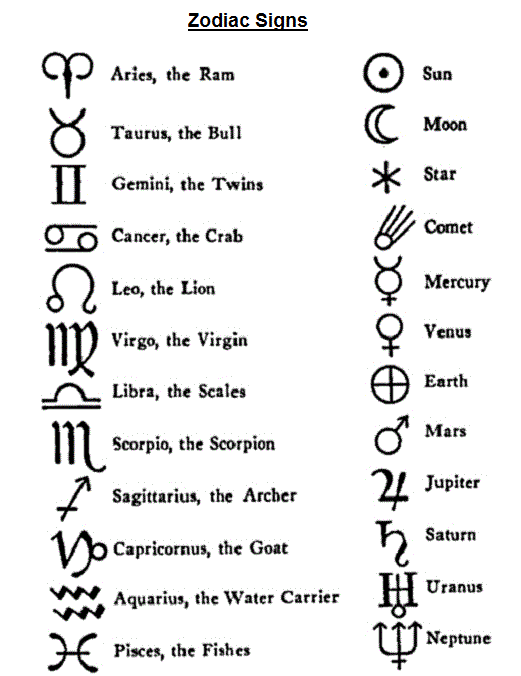- Yin and Yang form the core of astrological energies, representing feminine (Yin: intuition/emotions) and masculine (Yang: action/vitality) forces that shape your birth chart and life path.
- Understanding your chart's Yin/Yang balance reveals unique strengths, weaknesses, and opportunities for personal growth—empowering love, self-awareness, and harmony.
- The Moon (Yin) and Sun (Yang) guide pivotal energies in your chart, influencing both personality and romantic compatibility.
- Yin and Yang principles also underpin traditional Chinese medicine, martial arts, and feng shui—supporting holistic spiritual well-being.
- Shop verified love spells and astrological remedies for restoring balance, deepening relationships, and manifesting true love and unity.
✨ Ready to embrace real love and harmony? Shop authentic love spells that work from verified spell casters today!
In the world of astrology, few concepts are as powerful—or as influential—as the eternal dance of Yin and Yang. These ancient forces don’t just shape the universe; they awaken the secret energies within your own love life, personality, and spiritual journey.
Yin symbolizes the receptive, intuitive, and emotional; Yang stands for assertiveness, light, and outward activity. Their interplay is felt in every aspect of your astrological birth chart—offering profound clues about your relationships, strengths, and happiness. Ready to unlock what these forces reveal about you?
Get your spell cast by the best spell casters in the world—and discover the magic of balance, love, and personal transformation. Start with a real love spell to attract passion and unity now →
Unlocking the Power of Yin and Yang in Astrology
Astrology is a tapestry of energies—and at its heart lie Yin (the feminine, inward force) and Yang (the masculine, outward force). Their intricate balance shapes every zodiac sign, planet, and celestial dynamic you encounter in a birth chart.
Understanding Yin and Yang: What Do They Really Mean?
Yin represents intuition, receptivity, and nurturing. Think of the Moon: hidden feelings, cycles, emotional undercurrents.
Yang symbolizes activity, assertiveness, and action. It’s embodied by the Sun: visible, radiant, conscious will.
Instead of working against each other, Yin and Yang are deeply interconnected. They generate cycles of change, love, and growth—especially once you recognize how they show in your chart.
The Moon (Yin) & Sun (Yang): The Astrological Foundations
In your astrology chart, the Moon reveals your Yin energy—your deepest emotions, instincts, and subconscious needs. It’s the side of you that craves gentle love, security, and nurturing.
The Sun holds the Yang frequency—the fire of your personality, willpower, conscious self, and creative drive. Together, these celestial forces establish the blueprint of your destiny and relationships.

How Yin and Yang Shape Your Birth Chart & Personal Growth
Every astrological birth chart is a unique fingerprint of Yin and Yang energies. By decoding these patterns, you unlock secrets to your inner strengths, emotional wounds, and spiritual opportunities.
Identifying Your Balance: Key Insights for Self-Discovery
- Lots of Yin? You may excel at empathy, intuition, nurturing connection, and artistic or emotional pursuits.
- Dominant Yang? Your gifts lie in leadership, passion, and going after your desires fearlessly.
- Balanced energies? Expect powerful harmony in relationships and life direction.
Tip: Use our love spells collection to harmonize Yin and Yang—create the love story your soul craves!
Yin & Yang in Zodiac Signs: What Does Your Sign Say?
- Yin signs: Cancer, Scorpio, Pisces (emotion, healing, deep bonds)
- Yang signs: Aries, Leo, Sagittarius (action, self-expression, romance)
Earth and Air signs showcase their own blend of Yin/Yang—check your chart for the mix that governs your desires and compatibility.
Decoding Love & Destiny: Yin and Yang in Relationships
In astrology—and especially in love—the right balance between Yin and Yang means lasting connection, passion, and real harmony.
How These Energies Affect Your Relationships
- Yin dominant? You nourish, listen, and bring healing to a partnership.
- Yang dominant? You inspire, protect, and energize your lover.
- Too much of either? Love spells like the Reconciliation Love Spell restore the balance that makes romance thrive.

Yin and Yang Across Cultures: Rituals, Healing & Feng Shui
Beyond just astrology, Yin and Yang are at the heart of traditional Chinese medicine, martial arts like Tai Chi, and feng shui. All these practices use the ebb and flow of Yin/Yang to promote health, happiness, and harmonious relationships.
- Traditional Medicine: Balances bodily energy (qi) for physical and emotional healing.
- Martial Arts/Qi Gong: Merge movement and stillness, building inner and outer strength.
- Feng Shui: Arranges your space so love, prosperity, and peace can flow in.
Craving a balanced life, radiant health, or lasting romance? Spell to Turn Friendship to Love helps harmonize the energies needed for transformation.

Real-World Benefits: Using Yin and Yang for Fulfillment & Love
- Personal Growth: Understanding and working with your natural Yin/Yang mix supports healing, confidence, and inner peace.
- Relationship Harmony: Knowing your own—and your partner’s—balance unlocks new levels of empathy, communication, and passion.
- Career Alignment: Yin-dominant? Explore healing, creativity, or support roles. Yang-dominant? Pursue leadership or innovation.

Experience Life-Changing Harmony—Start Now
Ready to step into your best self, manifest real love, and transform your destiny? Don’t let imbalance hold you back another day.
Shop proven love spells or try the Bring My Love Back to Me Spell for instant harmony.
⭐⭐⭐⭐⭐ “Incredible results...”
My relationship felt lifeless—within a week of my Yin/Yang chart analysis and the Lust for Me Love Spell, the spark returned! I feel whole and deeply loved again.
– Julia S., Cape Town
⭐⭐⭐⭐⭐ “More than a spell...a transformation!”
I finally understand why my relationships didn’t last—imbalanced Yin and Yang. With expert guidance and a Reuniting Love Spell, my soulmate came back—and we’re stronger than ever.
– Steve K., Pretoria
⭐⭐⭐⭐⭐ “The best spell casters for real love”
Belinda’s readings combined with the Growing His/Her Love Spell changed my whole perspective. My heart is open and my life feels blessed.
– Mpho L., Johannesburg

Spellcaster Belinda is a renowned spiritual advisor and love spell expert with over 20 years of hands-on experience in astrology, energy healing, and successful relationship casting. Her deep knowledge of Yin and Yang dynamics has helped thousands find the love, balance, and purpose they deserve. Contact Belinda for personalized guidance and spell work.




